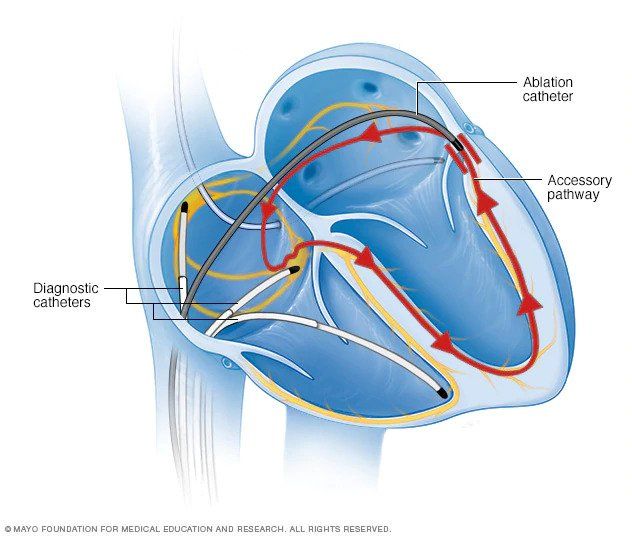Radiofrequency (RF) Ablation
in Daytona Beach & Titusville, FL
For any type of arrhythmia - Atrial Fibrillation, Atrial Flutter, SVT, PVCs or Ventricular tachycardia. Some treating the symptoms with medications and treat the problem with an ablation.
No one plans on having heart problems, but if you do you need to find a doctor you can trust. At Complete Cardiology Care we staff Cardiologists and Electrophysiologists that treat afib patients with hybrid ablations in Daytona Beach, Ormond Beach, Palm Coast, Deltona, Deland, and the surrounding areas.
2-4 hours
Minimally invasive
Reduce need for medications

What is Radiofrequency(RF) ablation?
Catheter ablation is a procedure that uses radiofrequency energy (similar to microwave heat) to destroy a small area of heart tissue that is causing rapid and irregular heartbeats. Destroying this tissue helps restore your heart’s regular rhythm. The procedure is also called radiofrequency ablation.
- Catheter ablation is used to treat abnormal heart rhythms (arrhythmias) when medicines are not tolerated or effective.
- Medicines help to control the abnormal heart tissue that causes arrhythmias. Catheter ablation destroys the tissue.
- Catheter ablation is a low-risk procedure that is successful in most people who have it.
- This procedure takes place in a special hospital room called an electrophysiology (EP) lab or a cardiac catheterization (cath) lab. It takes 2 to 4 hours.
Treat your arrhythmias at the source
If you are curious how we can help you with your arrhythmias with RF ablation in Daytona Beach, FL please reach out to us. We are currently accepting new patients. Complete Cardiology Care staffs Cardiologists and Electrophysiologist that serve patients in Ormond Beach, Daytona Beach, New Smyrna Beach, Port Orange, Deltona, Deland, and the surround areas.
Our Cardiologists and Electrophysiologist take nearly all insurances. We accept Aetna, AARP Medicare Complete, Blue Cross / Blue Shield, Cigna, Florida Healthcare, Florida Hospital Care Advantage, Freedom Health, Health First Health, Humana PPO - out of network benefits apply, Medicare, Optimum Healthcare, Railroad Medicare, Tricare, United Healthcare, VHN, Wellcare.
We are also a partner with the VA and are proud to serve those who have served our country!
Self Pay Cardiology services are available too! Call and ask for our price list.

